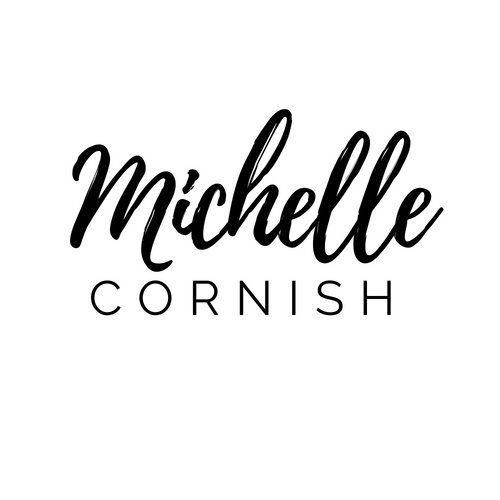A Closer Look Inside the World of Indie Publishing
/Mike O’Mary, LitNuts Co-Founder
Today’s guest post is from Mike O’Mary. Mike and Kathleen Meyer are Co-Founders of LitNuts, a free e-newsletter that brings the “Best of the Indies” to booklovers. Mike is also an author and owner of Dream of Things, an indie press that published 13 books from 2009 to 2016, including two titles that sold more than 20,000 copies, 3 NYT Bestsellers, 3 Hoffer Award winners, and one book that was optioned for film.
A Closer Look Inside the World of Indie Publishing
First of all, a big “thank you” to Michelle Cornish for having LitNuts as a guest blogger, and “greetings” to everybody who follows Michelle via her blog and on social media. I’m thrilled to be here today to have an opportunity to talk about the world of indie publishing.
I want to try to keep this relevant for everybody – whether you’re a booklover, author, publisher or just curious about a dynamic and diverse industry. So let me start with what indie publishing is and why you should care, before moving on to the biggest challenge in indie publishing.
What is Indie Publishing?
The easiest way to define indie book publishing is to say that it’s anything that does not come from one of the Big Five publishers: Penguin/Random House, Hachette Book Group, Harper Collins, Simon and Schuster and Macmillan (or any of their 250 imprints!)
Definitive market share stats are notoriously difficult to come by in the fragmented book publishing world, but Mike Shatzkin, Founder & CEO of The Idea Logical Company and a widely-acknowledged thought leader about digital change in the book publishing industry, tells me that the Big Five account for about 60% of commercially published books. The flip side of that is that indie books still account for about 40% of commercially published books, and that’s a good thing.
There are many, many independent publishers in the United States. The Independent Book Publishers Association (IBPA) has 3,000 members. There are also many independent authors. Shatzkin tells me that author-published (aka self-published) books account for about 30% of e-book sales. I regard any book from an independent publisher or any author/self-published book as an “indie” book.
Why Should You Care About the World of Indie Publishing?
Booklovers and authors should care about the world of indie publishing for several reasons. For one, many regard indie books as the lifeblood of the book publishing industry. While the Big Five focus on million dollar book deals and the next bestseller, indie publishers are focusing on creativity and originality – and on cultivating new authors. So if you’re not tapped into the world of indie books, you’re missing out on some great reading.
For authors, an indie press might be your best path to publication. While it’s difficult to get your foot in the door with a Big Five imprint, it’s much more feasible to find an indie publisher that will take your query or read your manuscript.
Not all indies accept unsolicited proposals or manuscripts. But many do. You just need to do your homework and scope them out to see what their interests and submission policies are. A good place to start is with the publisher directories you can find on The Writer magazine website – or with the Writer’s Digest list of small presses that don’t require an agent.
Besides great books and publishing opportunities, there’s another reason I believe readers and writers should care about indie publishing: While the world of the Big Five is still struggling (like many entities in the corporate world) to be more diverse – including representation of women and minorities in management – the world of independent publishing is already incredibly diverse. It’s kind of the nature of “indie” publishing!
With the advent of print-on-demand and e-books, the barriers to entry in indie publishing became very low. You don’t need a lot of money to get started. (You do need a lot of time – and ideally, some marketing savvy – but not necessarily a lot of money.) What that means is that anybody can get into indie publishing – and that’s a good thing! The result is a diverse group of people and publishers that can focus on niche markets and community-based books. In fact, there’s a very good chance that no matter where you live in the United States, there’s probably an indie press located somewhere near you.
Challenges in Indie Publishing
In a recent interview with Publishers Weekly, IBPA President Angela Bole discussed several challenges in indie publishing that apply to many small publishers – and probably apply even more to writers who have author/self-published.
Many indie publishers have small staffs and limited resources. Many do not have “traditional” distribution, which means that while their books may be “available” from brick-and-mortar bookstores, you’re probably talking about ordering it through the bookstore vs finding it in stock on the shelves. So indie publishers need to market directly to readers, which is very challenging when you have limited resources.
Think of it this way: book publishing is a big ocean. The Big Five and their 250 imprints dominate that ocean like a bunch of whales and sharks. The shelves in bookstores and the pages of most newsletters about books are dominated by the Big Five. If your book is a small (but beautiful!) starfish, it might be right there in front of a reader, but they might not notice it because, “Hey, look at that whale!”
That’s one of the main reasons we started LitNuts. I’m not aware of any other e-newsletter that is focused primarily on indie books, and we’re making it our mission to bring the “Best of the Indies” to booklovers – while also providing indie authors and publishers with an affordable way to connect with readers.
I sincerely believe that when booklovers see the wide range of creative, innovative and diverse books coming out of the indie publishing world, they will be “wowed” and look forward to learning more about indie books in the future.
Thank you for such an informative and thoughtful post, Mike! This blog tour comes with a chance to win a one-year subscription to Kindle Unlimited.
Learn more about LitNuts by following the blog tour pictured below or checking out the LitNuts website.





